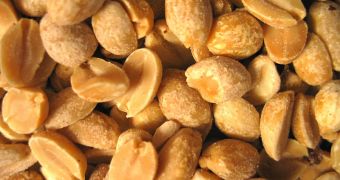The results of a new scientific study by researchers at the Boston Children's Hospital (BCH) Division of Allergy and Immunology indicate that pregnant women can eat peanuts during pregnancy without fear of causing peanut allergies in their children once they are born.
Previous studies suggested that it may not be such a good idea for would-be mothers to consume peanuts – a food stuff many children nowadays are allergic to – due to their potential of triggering inflammatory responses in the fetuses, and in their children later on in life.
The new investigation, detailed in the December 23 online issue of the esteemed scientific journal JAMA Pediatrics, shows that peanut allergies do not develop in kids whose mothers ate peanuts during pregnancy. Naturally, would-be mothers who are allergic should avoid this food altogether.
“Our study showed increased peanut consumption by pregnant mothers who weren't nut allergic was associated with lower risk of peanut allergy in their offspring. Assuming she isn't allergic to peanuts, there's no reason for a woman to avoid peanuts during pregnancy,” says BCH expert Michael Young.
The investigator, who holds an appointment with the DAI, was the senior author of the new paper.
In other researches, it was determined that highly allergenic foods are best avoided during pregnancy and nursing. These included peanuts and tree nuts, as well as other foods that contain chemicals capable of triggering severe immune and inflammatory responses, e! Science News reports.
Furthermore, the studies recommended that mothers did not feed peanuts to their children until the latter are at least 3 years old. The advice was given in order to minimize allergen exposure and sensitization in early life, although insufficient evidence existed to substantiate them.
“No one can say for sure if the [American Academy of Pediatrics'] avoidance recommendation for peanuts was related to the rising number of peanut allergies seen in the late 1990s and early 2000s, but one thing is certain: it did not stop the increase,” Young explains.
“It was clear that a new approach was needed, opening the door for new research,” the researcher says.
“We can't say with certainty that eating more peanuts during pregnancy will prevent peanut allergy in children. But we can say that peanut consumption during pregnancy doesn't cause peanut allergy in children,” the team leader goes on to add.
Young says that studies conducted to date do not provide sufficient data to demonstrate a cause-and-effect relationship between maternal peanut intake during pregnancy and the development of peanut allergies in children later on.

 14 DAY TRIAL //
14 DAY TRIAL //